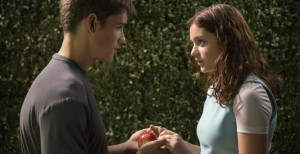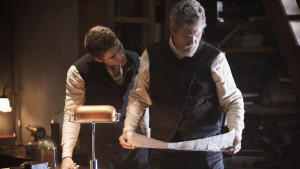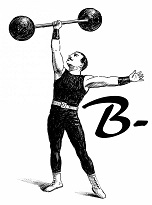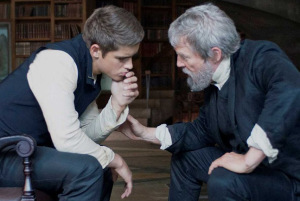“The Giver” starts out exactly like “Divergent;” with a basic review of what this futuristic community is like, followed by a ceremony where occupations are chosen for each citizen at their 18th birthday (where those in the premise of “Divergent” were put into different groups of basic personality traits). The second similarity is a love story – which is interesting to think this was a thing in young-adult literature circa 1993, so not much has changed – but it’s essential to the narrative. These similarities are where they begin and end.
This is a unique young-adult novel adaptation because it depicts a perfect world (a utopia, rather than a dreary dystopia “The Hunger Games;” one with no violence, pain, suffering, differences or choice. A young man, Jonas (Brenton Thwaites in his first big starring role), is chosen as the Receiver, a position chosen every ten years or so – and it is a position in which he will become the future Giver – to assist the elders with making decisions for the community. You see, the Giver (a mesmerizing Jeff Bridges) has the most knowledge and experience in the whole community because he holds all of the memories of the old world. The one with hideous violence, but also wondrous beauty.

I think Brenton Thwaites’ (“Oculus,” “Maleficent“) performance is actually memorable because he is different from his peers and not absolutely robotic. He brings some humour to his character, and hope to his peers. Jeff Bridges as The Giver is great because of his love of life and his need to get beauty back to the community. He also brought a welcome amount of humour to his character, though I am almost convinced he’s still stuck in the voice he used for Rooster Cogburn in “True Grit.” A charming young Israeli actress Odeya Rush (“The Odd Life of Timothy Green”) portrays Fiona, and is also notable for how well she captures her character’s fear and natural curiosity for change. Taylor Swift portrays one of those characters who plays a crucial role in a character’s development but only show up for five minutes. A scene she shares with Bridges and a piano is just lovely.
I think these performers set themselves apart from the rest because everyone else feels so plain. Especially Cameron Monaghan and Katie Holmes who are both quite boring. Alexander Skarsgård is still boring, but less so than the others. These characters, and every other cookie-cutter citizen, are all about never lying and using the precision of language – so for example, if you want to ask someone if they love you, you must ask instead if they “enjoy” you. At times I wondered if this is what the modern grammar-Nazi sounds like.
 One enjoyable technical aspect is the utilization of black and white film – which is about half of the runtime, but the other half is in colour. You might notice as the film progresses that black and white, and colour, are used more and more as a storytelling device to set the film’s tone. Black and white scenes are more robotic and plain, while scenes in colour are usually captivating and intriguing. The more it got into the heart of the film, the more I found myself enjoying it – after a very boring first twenty minutes (though the final minutes left me dissatisfied). One more comment on the technical aspect – the cinematography is absolutely stunning, in both black and white, and colour. “The Giver” is filmed in South Africa, where the settings and nature complement the film’s quality and beauty.
One enjoyable technical aspect is the utilization of black and white film – which is about half of the runtime, but the other half is in colour. You might notice as the film progresses that black and white, and colour, are used more and more as a storytelling device to set the film’s tone. Black and white scenes are more robotic and plain, while scenes in colour are usually captivating and intriguing. The more it got into the heart of the film, the more I found myself enjoying it – after a very boring first twenty minutes (though the final minutes left me dissatisfied). One more comment on the technical aspect – the cinematography is absolutely stunning, in both black and white, and colour. “The Giver” is filmed in South Africa, where the settings and nature complement the film’s quality and beauty.
It’s an ugly truth in this premise that in order to have no violence, one also has to surrender race, religion, uniqueness, decision-making, and emotions, among other things. This community is created by characters who focus on the hideousness of the old world, and want to shelter the citizens from it. This character – mostly the Chief Elder – is portrayed by an adequate Meryl Streep. However, the citizens are also being sheltered from the beauty of the world – namely colours, sunsets, and double rainbows. Robin Williams as John Keating in “Dead Poets Society” said, “…The human race is filled with passion… poetry, beauty, romance, love – these are what we stay alive for.” That quote does not describe The Giver‘s community, even though it is considered a “perfect” community. Even though our world has violence, one can escape in the beauty of everything around you. It has poetry, romance, love, beauty – but most of all – creativity, and that sounds like the true perfection to me.
– by Daniel Prinn


